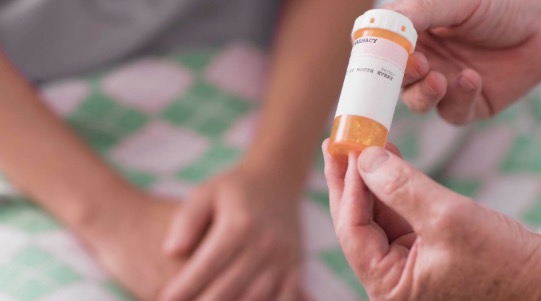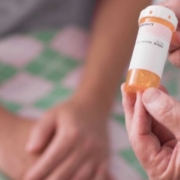Medication in Your DMs?
Medication in Your DMs?
 Medication in Your DMs?
Medication in Your DMs?
Lets face it: we have been living in the social media age for quite some time. As we scroll through our Instagram or TiKTok feeds, we are met with countless ads for clothes and streaming subscriptions. More recently, however, a new player has made its way to our smartphone screens (see Times link below for more). Medications for attention deficit hyperactivity disorder (ADHD), such as Adderall and Ritalin, are now part of the online subscription ecosystem without the need of meeting anyone in person. On average, patients meet with online doctors for only thirty minutes using these new apps. The mixture of powerful medication with social media may have potential benefits in the sake of healthcare access, but it undoubtedly also may lead to harmful treatment practices.
Historically, in person visits with doctors were needed to obtain ADHD medications, many of which are controlled substances. However, the COVID19 lockdowns led to lax guidelines for obtaining these prescriptions. While these new guidelines made it easier for patients to obtain medication during a pandemic, society is now balancing a fine line between access, medical ethics, and legal compliance to the Controlled Substances Act. Companies such as Cerebral Inc have capitalized on the new digital age, setting patients up with doctor referrals remotely and providing ADHD medications to new patients for the first time without any in-person visits to a care provider.
Patients taking stimulants or other medications for ADHD are often carefully monitored by their doctors for side effects and efficacy. Side effects such as racing heart, appetite suppression, insomnia, sweating, and emotional distress are sometimes experienced with stimulants. Moreover, because there are so many treatment options on the market, patients often work closely with their care providers to see what medications and dose regimens work as part of a comprehensive treatment plan. Much of this workflow can be disrupted by streamlined medication startups such as Cerebral. Some of their clientele, for instance, may be trying ADHD medications for first time without previous treatments and may benefit from a close patient-doctor relationship.
While ADHD medications have drastically improved productivity, organization, and well-being of many patients, the controlled substances can have harmful effects if put in the wrong hands or provided at the wrong doses. That is why it is especially troubling to see reports from social-media platforms of online-physicians feeling pressured to prescribe. The low standards of ADHD diagnoses have led many to believe that smartphone-based medication access is leading to a form of medical malpractice. In fact, this serves the basis of a recent investigations into Cerebral, which already serves 200,000 patients.
Here at Pathways Associates, we are committed to the highest standards of care. Contact us today for comprehensive ADHD evaluation if you believe you or a loved one are experiencing inattention that is disruptive to life, school, or work. Our team has years of experience that avoids potential risks posed by social media-based ADHD treatments. Our providers will work closely with you to provide an accurate diagnosis with a comprehensive and safe treatment plan that may include medication.
Read more here: https://www.nytimes.com/2022/05/13/well/mind/cerebral-adhd-medication-tiktok.html
#top .av_textblock_section.av-av_textblock-4b54a9376293c03bbf09fa7edbc1f1cb .avia_textblock{
font-size:16px;
}
At Pathways Neuropsychology Associates we use evidence-based evaluation instruments and treatments to get you, your loved one, or your child on the path to success. If you or someone you love are struggling with the symptoms of ADHD, call now and get started!
.flex_column.av-av_one_full-d3e509f4637007bf756d5d5b286252b3{
border-width:2px;
border-color:#d9d9d9;
border-style:solid;
border-radius:0px 0px 0px 0px;
-webkit-border-radius:0px 0px 0px 0px;
-moz-border-radius:0px 0px 0px 0px;
padding:20px 20px 20px 20px;
background-color:#f8f8f8;
}
The post Medication in Your DMs? appeared first on Pathways Neuropsychology Associates.
Source: ADHD
Medication in Your DMs?



